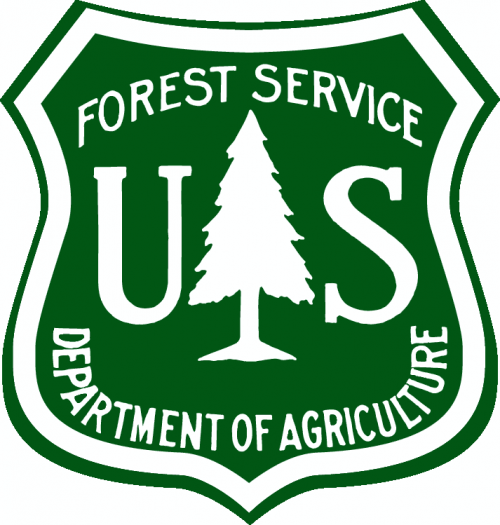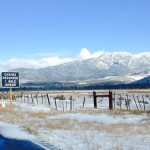
The need to modify the U.S. Forest Service’s budget process so that the cost of fighting wildfires does not jeopardize funding for other programs has reached another level.
On Oct. 4, White House Director of the Office of Management of Budget, the federal budget czar, was at the Angeles National Forest to share in a national radio broadcast appealing for support to urge Congress to take action after the election.
After Jeanne Wade Evans, deputy regional forester in the Pacific Southwest Region, gave a brief description of the current fire season, Shaun Donovan, the OMB director, lamented, “Again this year the cost of fighting wildfires has exceeded the funding level Congress has provided the Forest Service … The fundamental reality we’re seeing is that repeatedly, the costs of fire suppression are outpacing the increases in the overall budget of the Forest Service.”
While Donovan urged support for the administration’s proposal to alleviate the problem, he was really urging Congress to take some action.
Both Senate and House committees have passed separate legislation addressing wildfire funding. Donovan said, “I’m optimistic that when Congress gets back in lame-duck session in November and December, it can formally put this problem behind us and find a long-term, sustainable solution.”
He had previously acknowledged that Congress had come close to agreement last year, but it was not able to achieve joint concurrence.
“There are different approaches from different members of Congress. A few members are resistant to the approach we favor,” he stated. “I want to reach out earlier to different members of Congress to get everyone on the same path. I think there is a real opportunity this year to reach agreement.”
Of course, House Republicans have a different view of the funding stalemate. In a release following Donovan’s conference, Congressman Rob Bishop (R-UT), chair of the House Committee on Natural Resources, said, “The Administration’s political posturing on wildfire is dangerous. The Forest Service is paralyzed by even the threat of litigation.
“… More money alone, as the Administration called for once again today, is futile. … When the agency spends countless hours bulletproofing environmental documents against frivolous lawsuits, less time is spent treating fire-prone landscapes to prevent the most devastating and ruinous fires,” he added.
So far, the 2016 fire year has been less devastating than 2015, even though it started sooner, Wade Evans reported. Through last week, about 45,000 wildfires have occurred nationwide, about 10 percent fewer than in 2016. These fires have burned about 4.8 million acres or 45 percent fewer than last year.
The Resilient Federal Forests Act (H.R. 2647), introduced by Rep. Bruce Westerman (R-AR), passed the House in July 2015, with bipartisan support. Last month, the Senate Agriculture Committee passed S.3085, companion legislation to H.R. 2647.
In June, the U.S. Senate’s Committee on Energy and Natural Resources led by chair Sen. Lisa Murkowski (R-AK) and ranking member Sen. Maria Cantwell (D-WA), held hearings on draft legislation entitled the “Wildfire Budgeting, Response, and Forest Management Act.”










Shaun Donovan, the OMB director, lamented, “Again this year the cost of fighting wildfires has exceeded the funding level Congress has provided the Forest Service … The fundamental reality we’re seeing is that repeatedly, the costs of fire suppression are outpacing the increases in the overall budget of the Forest Service.”
In the words of one of the Presidential candidates, the system is rigged.
I can provide more detail, but in my email to Director Donovan’s office and to almost all of the elected officials who have spoken out about this problem, I have pointed out the the USFS is the funding mechanism for senior USFS retirees.
A company that employs senior USFS personnel patented a “safe’ gum thickened retardant. After the patent was approved the USFS changed the retardant specification to match the patent. We now pay for a chemical that is 3 times more expensive than the one it replaced, a chemical that is no more effective than the one it replaced and kills fish with the same ease as the chemical it replaced.
Per a GAO report, one of the air tanker companies, who happens to employ the ex director of acquisition management at the USFS, has air tankers with retardant systems that didn’t meet the required standards. The company got one year contracts until this year when it got a 5 year contract.
The USFS wanted C-130’s to use to fight wildland fires. Lockheed Martin, who manufacture the C-130’s, hired a former Undersecretary of Natural Resources who was in charge of the USFS. Congress approved the acquisition of 7 X C-13 even though the same GAO report noted that the USFS could not justify the expenditure needed to put these aircraft into service.
I am sure there are more similar arrangements and I would guess that the above 3 items probably waste a few hundred million dollars a year.
The Nature Conservancy, in bed with USFS funding “restoration projects” an excuse for logging and commercial timber sales. TNC funds the Sierra Club, Audubon and all other “conservation” groups.
Deforestation increases the frequency of wildfires. USFS wants to burn and sell the trees, and a blank check from taxpayers to buy the most expensive air fleet. — Some people are making big profits feeding this vicious cycle.
Bruce Westerman and Arkansas foresters talk about timber without understanding the function and magic of the forests. Bruce can’t tell the difference between Pine Plantantions, tree farms, and old forests.
Foresters see trees as timber, green dollars, their role is to harvest the forests.
USFS igonores the benefits of the forests: CO2 capture, clean air, fresh water storage and the best defense to extreme floods.
USFS ignores the root cause of west coast wildfires: droughts, heat and insect infestations.
USFS makes no difference between East and West forests. USFS uses prescribed burns as an excuse to sell timber, and ignores deadly particulate matter emissions from incomplete wood combustion.
USFS ignores public input, and District Rangers have full power. Federal agencies like USACE, EPA, US Fish and Wildlife turn their face away when the public asks for support. No one wants to get in the way of USFS.